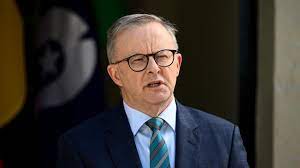By Martin Cole-
Australia on Monday committed about $300 million to improve life outcomes of its Aboriginal people, as the country marked 15 years since a national apology for forcibly removing Indigenous children from families under old assimilation policies.
The government announced A$424 million ($293 million) would go towards “Closing the Gap”, which includes providing safe and reliable water for remote Indigenous communities, building of new homes, making essential food affordable and accessible, and supporting families impacted by family violence.
In 2008, a newly elected center-left Labour Party government apologized to the Indigenous population for “laws and policies of successive Parliaments and governments that have inflicted profound grief, suffering and loss on these our fellow Australians.”
The focus of the apology was the so-called Stolen Generations — 100,000 children who were taken from Indigenous mothers under assimilation policies throughout most of the 20th century.
The apology came with an ambitious pledge to close the gap in life expectancies between Indigenous Australians and the wider population within a generation.
The government’s announcement if A$424 million ($293 million) would contribute “Closing the Gap”, which includes providing safe and reliable water for remote Indigenous communities, building of new homes, making essential food affordable and accessible, and supporting families impacted by family violence.
Australia’s Indigenous citizens live well below national averages on most socio-economic measures and suffer disproportionately high rates of suicide, domestic violence and imprisonment, despite living on the land for thousands of years.
Liberal leader Peter Dutton has apologised for boycotting the National Apology to the Stolen Generations in 2008.
The Indigenous Australians Minister says Mr Dutton should now work with government to support the Voice Mr Dutton, who was the only Opposition frontbencher to abstain from the apology, says he was wrong for not supporting it.
“I failed to grasp at the time the symbolic significance to the Stolen Generation of the apology,” Mr Dutton said.
“It was right for Prime Minister [Kevin] Rudd to make the apology in 2008.”
Mr Dutton has previously acknowledged he made a mistake boycotting the national apology, saying at the time he thought it should be made after the government had closed the gap between outcomes of Indigenous and non-Indigenous people.
In November last year, the country was still failing to meet almost half its targets for improving the lives of Indigenous people, including the problems of adult incarceration and suicide.
Speaking in parliament, Prime Minister Anthony Albanese(pictured) said the gap between life outcomes of the Indigenous and non-Indigenous people not only persist, but some are getting bigger.
“These are not gaps, they are chasms. It is clear that not enough support has been directed towards organisations to deliver for communities, Albanese said.
“It will be a long time before we can say we have done enough, but we have to do this work together. Day after day, week after week,” he said.
Opposition leader Peter Dutton apologised for boycotting the national apology in 2008.
“I’ve apologised for that in the past and I repeat that apology again today,” Dutton told parliament in his speech.
“I failed to grasp at the time the symbolic significance to the Stolen Generation of the Apology.”
Albanese is seeking bipartisan support for a landmark referendum this year to recognise Aboriginal and Torres Strait Islander people in the constitution.
The referendum will establish a so-called Indigenous “Voice”, that can make representations to parliament on policies affecting them. There is no mention of the Indigenous community in Australia’s constitution at the moment.
“For all of us, I am optimistic about the success of the referendum because I am optimistic that Australians will support this embrace of truth, justice, decency and respect,” Albanese told parliamentarians in the speech.
Australia’s First Nations people were not included in the census and recognised as part of the Australian population until 1967.




